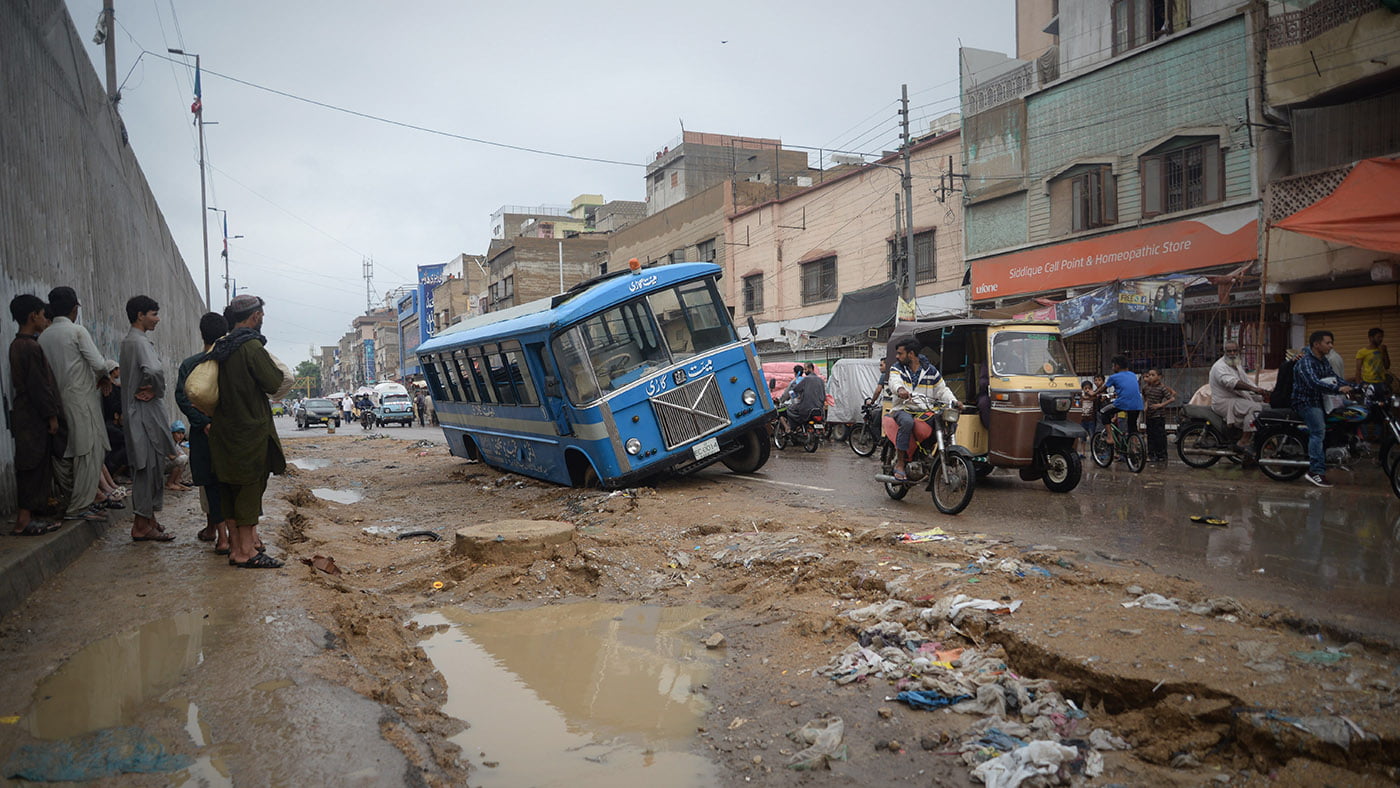Karachi is grappling with severe damage from an ongoing five-day rainstorm that has battered the city’s infrastructure.
As torrential rains continue, residents face a worsening situation with collapsing roads and widespread flooding.
A relentless five-day rainstorm has wreaked havoc on Karachi’s infrastructure, leaving roads severely damaged and many areas in disarray. The Met Office warns that the downpour, which began on August 27 and has already brought 226 millimetres of rain, is expected to continue, potentially causing further damage.
Significant road collapses, mixed rainwater and sewage, and impassable streets have emerged across the city. Although Sharea Faisal has been relatively spared, the extensive rains have led to widespread destruction. Clifton Block-2, Jehangir Road near Teen Hatti, and Korangi’s main link road are particularly affected, with road collapses and overflowing sewers leading to accidents.
University Road, already troubled by BRT Red Line construction, has deteriorated further, contributing to severe traffic congestion. Many local roads and service routes are in poor condition, with neighbourhoods struggling to manage repairs due to insufficient resources and manpower.
The failure of sewage lines has led to contamination of water supplies and increased health risks. Repair efforts are ongoing, with priority given to damaged lines on Tariq Road, in Gulistan-i-Jauhar, and Sohrab Goth Town, with KWSC officials working diligently to address these critical issues.
Minister Expresses Hope Amid Criticism
Sindh Government’s Stance
Sindh Local Government Minister Saeed Ghani recently emphasized that “speedy drainage of the accumulated rainwater from the affected areas of Karachi is the topmost priority of the Sindh government.”
During his visit to various localities, he assured that municipal agencies in Karachi would soon complete the drainage operation to clear roads and streets of rainwater.
Mr. Ghani visited Liberty Chowk on Tariq Road to inspect the repair of a collapsed 24-inch sewage line and later assessed the drainage operation in different areas of District East, including Safoora Town.
He highlighted that staff from the Karachi Metropolitan Corporation, towns, and union committees are fully engaged in emergency relief efforts and will repair damaged roads and streets once the monsoon ends.
Opposition’s Distrust
However, opposition parties have expressed skepticism about the government’s assurances.
Jamaat-i-Islami Karachi chief Ameer Monem Zafar held a press conference on the damaged Jahangir Road, accusing the government of misappropriation of funds and poor post-rain management.
He criticized the ruling Pakistan Peoples Party government, the local bodies department, and the mayor for the deteriorating infrastructure.
Zafar pointed out that the mayor admitted that 11 recently built or resurfaced roads were destroyed by the rains.
He lamented that Karachi, once known as the “city of lights,” now appears ruined despite substantial investment.
He mentioned that approximately Rs490 million was allocated before the rains for clearing rain drains, yet the situation remains unchanged, causing significant problems for commuters.

